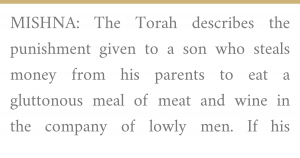Ki Saytzei 2021: The Curious Case of The Pubic Hairs
by devadmin | August 19, 2021 7:32 pm
Raboyseyee and Ladies:
We begin with a big mazel-tov shout out to our friends Naomi and David Kaszovitz, upon the beautiful and spirited wedding this past Monday of their son Eitan who married Rebecca Lipsky, she the beautiful daughter of Sharon and Harold Lipsky. Mazel tov to both extended families, to grandma Beverly, and may Rebecca and Eitan merit to share many decades of marital bliss together.
Another huge mazel tov to our friends Carine and Bruce Schneider upon the wedding this past Tuesday evening of their son Jeremy, to Sara Kaufman, she the beautiful daughter of Shari and Adam Kaufman of Woodmere. A great time was had by all! May Sara and Jeremy be zoche (merit) to be at each other’s side, in blissful marriage for many decades to come.
The Curious Case of the Pubic Hairs
The what? We shall address that down below, if you chap. Two parshas back – Parshas Re’ay- the RBSO gave the Yiddin permission to eat and enjoy meat, and ever since, Yiddin love their meat. Says the heylige Toirah (Devorim 12:20), azoy: “When the Lord enlarges your territory, as He has promised you, and you say, ‘I shall eat some meat,’ for you have the urge to eat meat, you may eat meat whenever you wish.” And we begin with eating meat why? So happens that at both weddings attended this week, Kaszovitz and Schneider- and at kimat every wedding or simcha the heylige Ois has ever attended, the longest line at the shmorg -even longer than at the bar- is always at the carving station where people wait patiently for a few slices of steak, lamb, veal, pastrami, corned beef and even turkey. Moreover, though not mentioned directly in the parsha, the eating of meat – in the case to be discussed below, large amounts of stolen meat, cooked in a particular way, paired with a precise amount of wine, all while on his father’s property, is our topic of the week. And? It also so happens that in the past year, the heylige Ois had the opportunity to meet -several times- with the founder and CEO of a new entrant into the Glatt-kosher mail order meat business.
And, before we get to the topic of the week -the wayward and defiant son who does not heed his father or mother- and who our sages tell us, helped himself to a portion of meat and wine (seemingly stolen), we begin this week with a shtikel plug to a new service in the Glatt Kosher meat business.
 Prairie Street Prime is revolutionizing the kosher cook-at-home experience by delivering premium USDA Prime and High-Choice Glatt kosher beef, lamb, and veal right to your door. It’s not cheap but the quality and service is first rate. Exactly what Prime Beef is, ver veyst, but according to the USDA, less than 5% of all beef is considered and may be labeled USDA PRIME. Seemingly it’s the best and Prairie offers it and other products to its customers via its website, check it out here https://prairiestreetprime.com/. Prairie sells only the best-of the best- meats and their site also features chef-inspired recipes and videos. For the carnivores, this is nirvana. For those planning Yom Tov meals, it’s time to stock up your freezers; check them out. And for those without access to a nearby Glatt Emporium, and those who don’t enjoy shopping in person, this is a givaldige solution. Check out a few of their beef offerings here: https://prairiestreetprime.com/collections/usda-prime-beef.
Prairie Street Prime is revolutionizing the kosher cook-at-home experience by delivering premium USDA Prime and High-Choice Glatt kosher beef, lamb, and veal right to your door. It’s not cheap but the quality and service is first rate. Exactly what Prime Beef is, ver veyst, but according to the USDA, less than 5% of all beef is considered and may be labeled USDA PRIME. Seemingly it’s the best and Prairie offers it and other products to its customers via its website, check it out here https://prairiestreetprime.com/. Prairie sells only the best-of the best- meats and their site also features chef-inspired recipes and videos. For the carnivores, this is nirvana. For those planning Yom Tov meals, it’s time to stock up your freezers; check them out. And for those without access to a nearby Glatt Emporium, and those who don’t enjoy shopping in person, this is a givaldige solution. Check out a few of their beef offerings here: https://prairiestreetprime.com/collections/usda-prime-beef.

Yearly as this parsha becomes visible, I get emails and calls asking to review the very curious case of “eishes yifas toar” (the beautiful captive woman), seemingly even married- Jewish soldiers might encounter on the battlefield and the permission -mamish explicit- given by the RBSO to the soldier to have his way with her, if you chap. The pisukim and myriad folios of the heylige Gemora and medroshim on the topic are electrifying, stupefying and avada stimulating. That being said, given that we’ve covered this sugya (topic) more than once and given that all prior gems are available on the heylige Ois’s burgeoning site (www.oisvorfer.com), we will skip ahead to another topic. Feel free to check out the archives to read what’s been written before. The bottom line: inexplicable as it may sound -even to most sages of yore- permission was granted for the soldier to enjoy war booty. And for that reason alone, many armies around the world, continue -ad hayoim hazeh (until this very day) to make sure their soldier’s guns are always cocked and loaded, if you chap. There are always opportunities to shoot, if you chap. One more bottom line: despite the dangers of war, were the United States to assure its fighting soldiers of such booty, few would have left Afghanistan willingly. Every military leader knows that R&R, if you chap, for the weary soldier, is vital and it’s no wonder that many sign up for multiple tours. Shoin.
And now out topic of interest: let’s begin by reading these four pisukim (Devorim 21: 18:22)
כִּֽי־יִהְיֶ֣ה לְאִ֗ישׁ בֵּ֚ן סוֹרֵ֣ר וּמוֹרֶ֔ה אֵינֶ֣נּוּ שֹׁמֵ֔עַ בְּק֥וֹל אָבִ֖יו וּבְק֣וֹל אִמּ֑וֹ וְיִסְּר֣וּ אֹת֔וֹ וְלֹ֥א יִשְׁמַ֖ע אֲלֵיהֶֽם׃
If a man has a wayward and defiant son, who does not heed his father or mother and does not obey them even after they discipline him,
וְתָ֥פְשׂוּ ב֖וֹ אָבִ֣יו וְאִמּ֑וֹ וְהוֹצִ֧יאוּ אֹת֛וֹ אֶל־זִקְנֵ֥י עִיר֖וֹ וְאֶל־שַׁ֥עַר מְקֹמֽוֹ׃
his father and mother shall take hold of him and bring him out to the elders of his town at the public place of his community.
וְאָמְר֞וּ אֶל־זִקְנֵ֣י עִיר֗וֹ בְּנֵ֤נוּ זֶה֙ סוֹרֵ֣ר וּמֹרֶ֔ה אֵינֶ֥נּוּ שֹׁמֵ֖עַ בְּקֹלֵ֑נוּ זוֹלֵ֖ל וְסֹבֵֽא׃
They shall say to the elders of his town, “This son of ours is disloyal and defiant; he does not heed us. He is a glutton and a drunkard.”
וּ֠רְגָמֻ֠הוּ כׇּל־אַנְשֵׁ֨י עִיר֤וֹ בָֽאֲבָנִים֙ וָמֵ֔ת וּבִֽעַרְתָּ֥ הָרָ֖ע מִקִּרְבֶּ֑ךָ וְכׇל־יִשְׂרָאֵ֖ל יִשְׁמְע֥וּ וְיִרָֽאוּ׃ {ס}
Thereupon the men of his town shall stone him to death. Thus you will sweep out evil from your midst: all Israel will hear and be afraid.
Did you read the above pisukim? We are to have him killed!? Mamish stoned to death by the men of his town? For what? Just because he didn’t listen to his mother and his father? The so-called petty criminal is to be surrounded by a ring of townspeople in the town square and under orders of the court, he is to be executed; death by stoning. It’s zicher the case that any execution is an upsetting scene, but this particular episode in our parsha is mamish mystifying and troubling: The criminal charges are gluttony, drunkenness, and obstinacy, and we kill him? And the criminal is a child? Are these crimes on par with real capital offenses described elsewhere in the heylige Toirah? Does the child’s crime conflate with false prophesy, murder, adultery, or kidnapping, all extremely violent and dangerous? As the Ois sees it, the child in this case seems in need of radical intervention, not execution. He needs a proverbial ‘patch in the tuchis’ and not to be murdered.

Did this person rape or kill anyone? Not! Was he a child molester? Also not: He himself is a child. What was his sin? How old was this person? What crime did he commit to be deserving of the death penalty? Is not public stoning a shtikel harsh for being a wisenheimer to one’s parents? And if that’s all it takes for a death sentence, shouldn’t we all be dead? And before we dig for answers, a few more questions: is the context of the law and its position in the law collection (סמיכות פרשיות) significant? In other words: is this law at all related to the soldier who captured a hot shiksa on the battlefield, and then brought her home to his family (current wife)? Is this new law of the wayward son related to the laws of the person who has two wives, a loved one and a hated one? What commandments were given just before this one? Answer: The law of the rebellious son does follow one regarding the son of the hated wife, which follows the permission for the soldier -in heat- and on the battlefield to engage, if you chap, and immediately precedes the proper treatment of the corpses of executed criminals. More on this soon.
A few more questions: Is the law only about sons, or also about daughters? What is meant by “disciplining (ויסרו)” him? What does סורר ומורה mean? What exactly is the sin of the son? Does זולל וסובא denote something different than סורר ומורה, or are they synonymous? What is this “place of the elders” in the legal procedure specifically mentioned in the pisukim above? Nu, as you only imagine, our sages of the heylige Gemora and many others, looked at these pisukim and were bewildered mamish -as are most of you; what’s taka pshat? Is the RBSO heartless? Would He mamish ordain death, and by stoning, for so tiny a sin? So many questions, let’s try finding a few answers.
Shoin, to make the punishment fit the crime, and left with a huge lacuna in the text where only the punishment was easily understood but the crime, not so much (or at all), our sages came along and began to fill in scenarios under which such a person would taka deserve the death penalty. In plain English: they trumped up the charges to fit the punishments described in the heylige Toirah. The heylige Ois came across at least 111 different writings on this topic and there are many more.
 Shoin, before we take a deep dive and dissect each word of the instructions to this commandment, let’s read them one more time as written in the heylige Toirah (Devorim 21:18-21): If a man has a stubborn and rebellious son [ben sorer u-moreh, who will not hearken to the voice of his father, or to the voice of his mother, and who, even though they discipline him, will not hearken to them; then his father and his mother shall seize him, and bring him out to the elders of his city, and to the gate of his place. And they shall say to the elders of his city, “This, our son, is stubborn and rebellious. He will not hearken to our voice. He is a glutton and a drunkard.” And all the men of his city shall pelt him with stones, and he shall die. So shall you remove evil from your midst, and all Israel shall hear and fear. Ober, did this happen in real life?
Shoin, before we take a deep dive and dissect each word of the instructions to this commandment, let’s read them one more time as written in the heylige Toirah (Devorim 21:18-21): If a man has a stubborn and rebellious son [ben sorer u-moreh, who will not hearken to the voice of his father, or to the voice of his mother, and who, even though they discipline him, will not hearken to them; then his father and his mother shall seize him, and bring him out to the elders of his city, and to the gate of his place. And they shall say to the elders of his city, “This, our son, is stubborn and rebellious. He will not hearken to our voice. He is a glutton and a drunkard.” And all the men of his city shall pelt him with stones, and he shall die. So shall you remove evil from your midst, and all Israel shall hear and fear. Ober, did this happen in real life?
Says Reb Yosi Haglili (Remember him? We invoke his name yearly at the Pesach Seder), azoy: “The Toirah foresaw the ultimate destiny of the stubborn and rebellious son. Having dissipated his father’s wealth -seemingly we accuse him of stealing money from his parents to buy meat and wine, he would seek to satisfy his wants and be unable to do so. He would then go to a crossroad and rob. Therefore, the Toirah ordained: Let him die innocent rather than die guilty – for the death of the wicked benefits both themselves and the world.” In other words: the draconian law of the stubborn and rebellious son is a form of pre-emptive punishment. He is deemed deserving of capital punishment not for what he has done, but for what he is likely to do in the future. He is killed as deterrent to prevent the other Yiddin from sinning? The instructions end with these words: “All Israel will hear of it and be afraid.” Is that pshat? We kill the child to prevent all others from sinning? That is the case according to Reb Yosi who seemingly bases his logic on the last few words of the instructions. Potential criminals will be discouraged by seeing the fate of this one. Ober is this the heylige Toirah’s view on punishment? Were we not taught in yeshiva that Yiddin are only judged based on sins mamish committed? We were. And listen to this: did we not learn the very emotional story of how the RBSO sent a Malach (angel) down to save Yishmoel after his own father Avrohom kicked him out of the house? Let’s recall how Yishmoel was sitting roadside crying from starvation, near death mamish. Why was Yishmoel who would grow up to become the arch enemy of the Yiddin -ad hayoim azoy- saved? Because the RBSO told the Malach azoy: at this point in time, he is but an innocent child; go down and save him. In other words, he has yet to become a sinner. Yet we are to kill this young kid now for crimes he might commit in the future? What’s pshat? Why is this child different?
Says the Da’as Zkenim azoy: the death penalty decreed here for what must appear to the reader as a relatively minor sin by a teenager, is understood as the Toirah’s way to save this son from losing his share in the world to come, if he were allowed to continue in his lifestyle. We kill him now so that he can enter the world to come?! This is how Rashi explains it. And if you were to ask that at least he should not have to face a harsher death penalty than that administered for armed robbery, which is death by the sword, not death by stoning, the Toirah wrote that he ignored both father and mother, a euphemism for this son cursing father and mother, a crime which carries the penalty of death by stoning.
Don’t like that pshat? Cannot blame you and there is better news? Mamish? And the good news? It never happened! What never happened? As it turns out, there is no record of a rebellious son ever having been executed, except for a dictum of Reb Yoinoson found in the heylige Gemora (Sanhedrin 71a) where he states that he had once seen such a one -a wayward kid- who was killed by stoning- and he, Reb Yoinoson, sat on his grave.
And more good news: after dedicating more than four blat (folios) of the heylige Gemora (Sanhedrin 68a–72a) to the analysis of these four pisukim, it is an old and probably valid and accepted tradition that there never had been, nor ever will be, a rebellious son, and that the law had been pronounced for educational and deterrent purposes only, so that parents be rewarded for bringing their children up properly. So says Toisfes (Sanhedrin 11:6). Are we suggesting that the RBSO told Moishe to teach us this law to the Yiddin as but a lesson in life? Perhaps.
Shoin, having given you the final decision and opinion of the Gemora, let’s take a look a at how brilliant our sages were and why so many attorneys who need to argue cases before the courts, should all be versant in the heylige Gemora; you will mamish be astounded by their logical arguments and how they dissected each and every word of the instructions to kill the child and yet found him innocent; it never happened. How so? How could our sages decide mamish the opposite of what the heylige Toirah instructed? What gave them the right to conclude that such a case never happened and never will?
And the answer Raboyseyee is azoy: as stated above, our sages of the Gemora, looked at the RBSO’s written instructions over and again. They parsed each word and then came up with a plan. The decided that by interpreting every single word of the biblical text restrictively, they – the Talmudic jurists- reduced the practicability of this law to nil. There was no way for any child to have been convicted! Let’s spend a few paragraphs analyzing their rationale and you too will be amazed at their wit.
Our sages wondered azoy: He is to be executed even if he is a minor, and not responsible for the commandments? How old is this boy or child? And at what age is he no longer required to listen to his parents? Seemingly, if he is an adult, his parents do not have authority over him. And the biggest of all questions might be this: is he not even given an opportunity to repent (teshuvah)? Is death the only recourse here? Where would we all be without the ability to say I’m sorry to the RBSO? Dead! And the bottom line of the entire Gemora discussion is this: unbale to make sense of the instructions, the Gemora concluded this case never happened and never will. Does the heylige Toirah describe a make-believe situation? Our sages concluded that taka that’s the case. How was that possible? They made sure of it by carefully analyzing the many requirements before death sentence can be carried out, and for that reason they concluded that it is extremely unlikely it ever will be.
First, they excluded all girls. How? The heylige Toirah tells us “A son” and by definition if one has a wayward daughter, she’s exempt from such punishment. Next: Only his parents can request his execution, and both must agree on it, using the same words. If they both don’t complain using the same exact words of complaint, the son goes free. Have you ever seen parents agree? Says the Mishna: [If the boy’s] father wishes to have him declared stubborn and rebellious and his mother did not so wish, or vice-versa, he is not liable. Next: If either of his parents is handicapped in a relevant way, he cannot be killed. Why not? Says the Mishnah: If [his father or his mother] was missing a hand; or was lame, mute, blind or deaf, he does not become a “stubborn and rebellious son,” because it is written: “Then his father and his mother shall seize him”. How can they seize him without a hand? Shoin! The Toirah states “and bring him out.” This excludes lame parents [who can’t walk]. “And they shall say.” This excludes the mute. “This, our son.” This excludes the blind [because it implies that they see him]. “He will not hearken to our voice”. This excludes the deaf [because they cannot hear his response when they admonish him].

More good news: If his parents don’t have similar voices, he goes free. What’s pshat? The Toirah states: “He will not hearken to our voice”. [This teaches that the boy’s parents must have similar voices]. And says Rebbe Yehudah, that his parents must also have the same appearance and height, as an implication of having similar voices.
And now hear this: If he is a minor, i.e. below bar mitzvah age, he also goes free. A minor -under bar mitzvah age- is exempt, since he has not yet entered the realm of the commandments. And now the best part: If he is post bar mitzvah age, he is under parental control only for about 3 months. Why is that? We shall explain below ober the bottom line is this: this entire episode of the wayward child can happen only in the 3 months after he turns 13. Says the Mishneh azoy (Sanhedrin 68b), azoy: When does a stubborn and rebellious son become liable to the [death] penalty? The “son” must be old enough to bear criminal responsibility, that is 13 years of age, but must still be a “son” and not a man. As soon as a beard grows (“by which is meant the pubic hair, not that of the face, for the sages spoke euphemistically”) he is no longer a “son” but a man. So says the heylige Gemora (Sanhedrin: 8:1). The period during which he may thus be indicted as a “son” is three months only though according to another version in the heylige Gemora (Yirushalmi Sanhedrin 8:1), not more than six months. Bottom line below is azoy: if one has a full beard below, he goes free as he is no longer considered a child. Bottom line: manscaping at age 13 could be dangerous to your health.
Wait, there’s more our sages came up with. If he is not properly warned and punished first, he cannot be found guilt nor stoned. Says the Mishnah: [His parents] must warn him before three [judges] and the court flogs him. If he repeats his misdeeds afterwards, he is judged by a court of 23, [which must include] the original three judges, for it is stated “This, our son”, [meaning that they can point to the original judges and say:] “This is [the son] who was flogged in your presence.” It gets better for the son: If he flees and is caught too late, he gets off. Says the Mishneh. If [the boy] fled before his [guilty] verdict was reached, and [when he is caught] he has already grown full pubic hair, he is exempt. And more: If he was fathered by a minor, he goes free. Says the heylige Toirah: “If a man has a stubborn and rebellious son.” And pshat is azoy: If his father is not a man, he is exempt. If he eats and drinks less than a specified (large) amount of food and drink, all at one time, he goes free. Asks the Mishneh azoy: When does he become liable? When he eats a tartemar of meat and drinks half a log of Italian wine. Rabbi Yosi said: A mina of flesh and a log of wine. [Sanhedrin. 70a] -If his overeating and overdrinking was while he was involved in a religious act or celebration (such as a holiday or a (the shmorg) at a wedding), in the company of others (even crooks), he goes free. Says the Mishneh. [If the boy over ate and drank at a gathering that involved a mitzvah… he is not liable. And if his overeating and overdrinking is not of meat and wine, he goes free. Vegans and vegetarian need not worry. Says the Mishneh, if he ate any food but meat, or drank any drink but wine, he does not become a “stubborn and rebellious son”. [He must] eat meat and drink wine. [Why?] Because it is written, He is a glutton [zolel] and a drunkard [ve-sove]. And … it is [also] written [in Proverbs], Do not be not among wine bibbers [ve-sov’ei]; among gluttonous eaters of flesh [ve-zol’lei]. [The use of the same words implies wine and meat.].
The bottom line: the heylige Toirah’s wording hints at all these exclusions so this would never happen. Case closed. And if so, why is this in the Toirah at all? Only to teach us things: says Rebbe Shimon: There never has been a stubborn and rebellious son [who was executed] and there never will be one in the future. Why then was the law written? [the RBSO said:] Study the passage and you will receive reward for doing so.
Ober what about Rebbe Yoinoson -mentioned above- who said “I saw [such a son] and I sat on his grave?” not to worry because the heylige Gemora was ready with an answer: Rebbe Yoinoson was a koihen (priest), so was prohibited to touch a grave. How could he have sat on the boy’s grave if the was prohibited? Bottom line: we discount rebbe Yoinoson’s account.
Why did the RBSO write about the wayward son? To warn against marrying the “captive woman” encountered on the battlefield. Said Rav Yehudah in Rav’s name… Interpret the proximity of verses… For in proximity [to marrying the captive woman] it is written, “If a man has a stubborn and rebellious son.” [This teaches that] whoever marries a beautiful woman [taken in battle] will have a stubborn and rebellious son. [Sanhedrin 107a]. Dovid Hamelech (King David) married such a woman (Maacah) and had Avsholom, who later tried to kill his father and usurp his throne. He, Avsholom, slept with his father’s wives and caused war. Mamish? Read all about in the Novee [2 Shmuel 3-20].
The final bottom lines: we must learn from this entire analysis of the wayward son, never to argue with anyone who is well versed in the heylige Gemora: they will have your head spinning like a dreidel.
And we close with this thought: a few hours after I put the finishing touches on this week’s parsha review, and hours after I sent it to the webmaster for dissemination at around 6PM, my brother Avi called me to ask a specific question on the Rosh Hashono davening. He will be leading parts of it. In the course of conversation and after discussing the topic and a few details, he gave me a great pshat on something written above. One of the disqualifiers, one that allows the wayward child to go free and avoid the death penalty, is if both parents do not come with the same voice. Said Avi azoy: what’s pshat the same voice? Not that they have to sound exactly the same. Pshat is the parents must be aligned when raising children. When each has their own view about a child’s upbringing -examples aplenty- the result could be the wayward child. Gishmak and kudos.
A gittin Shabbis –
The Heylige Oisvorfer Ruv
Yitz Grossman
Source URL: https://oisvorfer.com/ki-saytzei-2021-the-curious-case-of-the-pubic-hairs/